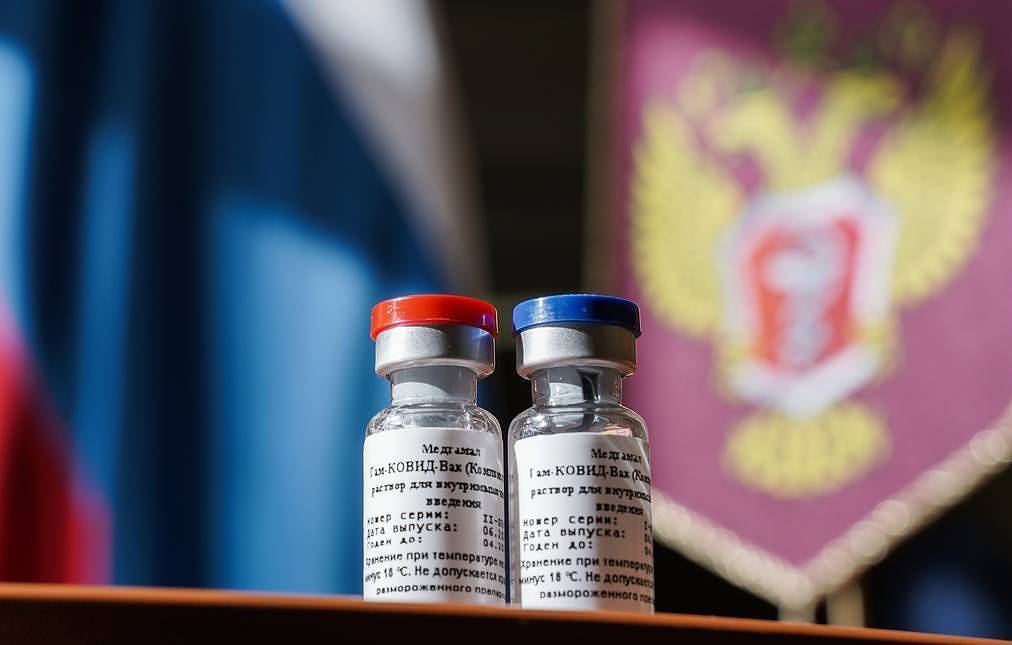RIO DE JANEIRO, BRAZIL – Russia’s President Vladimir Putin announced the development of a vaccine against Covid-19, which received regulatory approva less than two months after it began human trials. But is it safe?
The Russians intend to begin vaccinating the population as early as October, but the vaccine has not yet undergone all the mandatory tests to be approved by the World Health Organization (W.H.O.).
However, Putin even said that his daughter has already been immunized, according to a report published by BBC News.

But international scientists and researchers are concerned about how quickly Russia has developed the long-awaited vaccine.
Fearing that the drug’s safety might pose risks, last week the W.H.O. asked Russia to follow international guidelines for the formulation of a vaccine against the novel coronavirus SARS-CoV-2, which causes Covid-19.
Sputnik V is not included on the entity’s list of six vaccines that have reached stage three of clinical trials, which now include broader human trials.
Putin said the vaccine, developed by the Moscow Gamaleya Institute, provides “sustained immunity ” against the novel coronavirus. Russian Health Minister Mikhail Murashko said the vaccine “has proven to be highly effective and safe,” praising it as a major step towards “humanity’s victory” over Covid-19, according to the BBC.
Mass vaccination
Christian Lindmeier, a W.H.O. spokesperson, calls for caution. “Sometimes researchers say they’ve found something. That’s obviously good news… But there’s a big difference between finding, or having a clue, about a vaccine that works and undergoing every stage of testing.”
The truth is that Russia is not the first country to test vaccines against the novel coronavirus and to report positive results – North Korea did the same over the weekend – but it is the first nation to announce a specific date for the start of mass vaccination of its population, as early as October.
Under suspicion: where is the study?
BBC News reports that Russia has not published any research or scientific evidence on the tests it has conducted.
Furthermore, no details are known about the procedural stages that must be completed before a vaccine is approved and released on the market.
What is known about this vaccine?
The Sputnik V against SARS-CoV-2 was developed by scientists from the National Research Center for Epidemiology and Microbiology (Gamaleya) together with the Ministry of Defense, disclosed the Russian service to the BBC.
In June, the latter reported on the “successful” completion of trials on volunteers at the Burdenko military hospital but failed to release any scientific evidence to support it.
“At the time of discharge, all volunteers, with no exception, who received immunity against the coronavirus felt well. So the first domestic vaccine against the novel coronavirus infection is ready,” said Deputy Defense Minister Ruslan Tsalikov.
The Ministry of Defense also emphasized that the results so far “unequivocally” demonstrate the development of “an immune response in all volunteers, with no side effects, complications or undesired reactions.”
Suspicions and doubts
The BBC pointed out that experts within the country and abroad have been concerned about the clinical trials allegedly conducted, fearing that they were not sufficient. This is because Vladimir Putin is said to have ordered the government in April to simplify and shorten the deadline for clinical trials.
In May, the Association of Clinical Research Organizers reprimanded Russia when it learned that investigators at the Gamaleya Institute had inoculated themselves with doses of the vaccine when it was still being tested on animals, something that is deemed unethical in science.
Several scientists around the world, including Anthony Fauci, the US government’s leading expert on infectious diseases, questioned Russia’s urgency and the efficacy of this vaccine designed in record time, without extensive large-scale testing having been completed.
“Anyone can say they have a vaccine and manufacture it, but it has to be proven safe and effective, which I doubt they have demonstrated,” Fauci said.
“We could also have a vaccine tomorrow. It wouldn’t be safe or effective, but we could have a vaccine tomorrow.” “You have to be careful about anyone who claims to have a vaccine now,” he cautioned.
Additionally, doubts arise about Russia’s ability to produce a vaccine intended for millions of people in such a short time.

